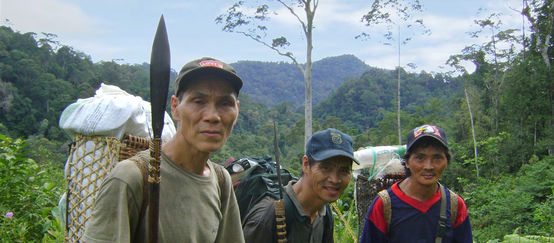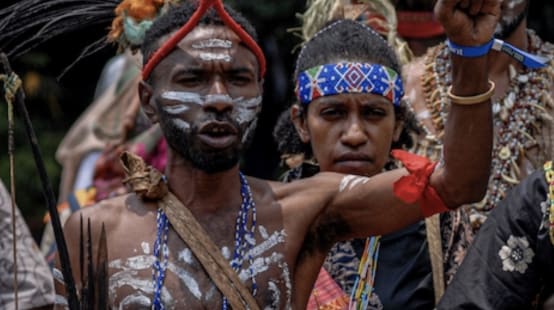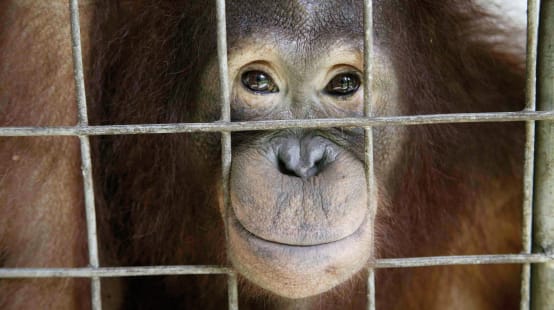How many more killings? stop the Agua Zarca dam!
Rainforest Rescue and a broad coalition of NGOs protested in front of the Siemens headquarters in Munich and delivered petitions with a total of 200,000 signatures. Voith has dropped its plans to supply technology to the Agua Zarca hydropower project.
Environmentalists Berta Cáceres and Nelson García were murdered recently in Honduras. They led a campaign to stop the Agua Zarca dam, which would have a dramatic impact on nature and local communities. European backers dropped the project in the wake of the killings. Tell technology vendors Siemens and Voith to abandon it as well.
News and updates Call to actionTo: the management of Siemens AG and Voith GmbH, Germany
“Siemens and Voith must pull out of the deadly Honduran dam project.”
Environmental, social and human rights organizations the world over have expressed their shock at the murders of Berta Cáceres and Nelson García in Honduras.
The financial backers of the Agua Zarca dam project have since responded to the lawlessness in the Central American country. The Dutch development bank FMO and Finland's Finnfund suspended all activities in Honduras and put disbursements for Agua Zarca on hold, citing "ongoing violence".
22 environmental organizations are now calling on two German technology companies slated to deliver the dam's power generation equipment, Siemens and Voith, to drop the project as well (in German).
Sinohydro, a state-owned Chinese company and one of the world's largest dam builders, already dropped out of the project in 2013 because of land conflicts with local communities.
On March 2, Berta Caceres was shot in her home by unknown assailants. As the leader of COPINH, a Honduran indigenous organization, she had been receiving threats for years. In 2015, the world-renowned environmental and human rights activist was awarded the Goldman Environmental Prize for her role in the fight against the Agua Zarca dam project.
Her daughter, Bertha Zúniga Cáceres, accuses the construction company DESA of being involved in her mother’s death. She also asserts that the Honduran government is partly to blame for the killing by awarding numerous licenses for mining and hydropower projects on indigenous land (TV interview in English and Spanish).
On March 15, COPINH activist Nelson García was also murdered in his home. García had stood up for indigenous victims of a violent mass eviction by Honduran security forces.
Please support our petition to Siemens and Voith – let’s put an end to this deadly project once and for all.
BackgroundAgua Zarca: a story of violence and intimidation
“They follow me, threaten to kidnap or kill me, and intimidate my family. It’s a situation we constantly face,” explained Berta Cáceres shortly before her death. Bogus lawsuits were filed against her and two of her children had to leave Honduras for their own safety. Three of her fellow activists, who peacefully opposed the construction of the Agua Zarca project, have been killed since 2013.
The dam on the Gualcarque River would threaten the survival of hundreds of Lenca indigenous people. The Civic Council of Popular and Indigenous Organizations of Honduras (COPINH) co-founded by Berta Cáceres advocates the rights of the Lenca.
Furthermore, the life of the only witness to Berta Cáceres’ murder is in danger: the Mexican environmentalist Gustavo Castro, who was visiting Cáceres at the time, was also hit by two bullets and left for dead by the assailants. Since then, he has had to seek refuge in the Mexican embassy in Tegucigalpa because the Honduran authorities, who will not guarantee his safety, have prevented him from returning home and apparently have even tried to pin Berta Cáceres’ murder on him.
Honduras: the world's deadliest country for environmentalists
According to the British organization Global Witness, Honduras is the most dangerous country in the world for environmental activists. People who stand up for their rights to land or an intact environment are systematically persecuted in Honduras and their lives are most at risk. 111 activists were killed in Honduras between 2012 and 2014 – twelve alone in 2014. This is the highest figure in relation to the population of the countries studied by Global Witness in its report How Many More?.
The fact that Honduran law enforcement rarely does more than a cursory investigation amounts to a tacit government sanction of the killers’ actions. The primary conflicts in Honduras revolve around land rights, mining and dam projects. Mining concessions have been granted for around one third of the country’s area, and hundreds of hydropower projects are planned to meet the energy needs of those mines.
Press releases and petitions
On March 14, 2016, several Dutch civil society organizations published an open letter calling on the Dutch Development Bank (FMO) to divest from the Agua Zarca dam project. Two days later, following the murder of Nelson García, FMO announced on its website that it would be suspending all activities in Honduras effective immediately.
In a statement dated March 11, 2016, Voith addressed the murder and announced its plans to review the situation on the ground and its significance for its contract with DESA.
22 German organizations, including Rainforest Rescue (Rettet den Regenwald e.V.), published an open letter (in German) to Siemens and Voith on March 18 calling for the immediate withdrawal of the companies from the Agua Zarca hydropower project in Honduras.
Further information
- Banktrack: background on the Agua Zarca project
- International Rivers, March 3, 2016: Tell Dam Builders to Pull Out of Agua Zarca Dam!
- Business & Human Rights Resource Centre: Honduras: Second member of indigenous group murdered within 2 weeks, Dutch development bank suspends activity
- Open letter by 22 NGOs to Siemens and Voith dated March 18, 2016 (in German)
- Voith’s statement on the murder of Berta Cáceres dated March 11, 2016 (in German)
To: the management of Siemens AG and Voith GmbH, Germany
Ladies and Gentlemen,
Following a wave of violence in Honduras related to the Agua Zarca dam, European backers of the hydroelectric project have taken action: the Dutch development bank FMO and Finland's Finnfund have suspended all activities in Honduras effective immediately and canceled all disbursements for Agua Zarca in response to the murders of activists Berta Cáceres and Nelson García.
A withdrawal from the Agua Zarca project by Siemens and Voith would demonstrate that your companies take international environmental and human rights conventions such as ILO 169 seriously. Conversely, by remaining in the project and delivering the necessary technology, you would send a clear signal to the world that you consider your bottom line to be more important than human lives.
We call on you to put an end to your business activities related to Agua Zarca. Please cancel all contracts with the Honduran company Desarrollo Energético SA (DESA).
Sincerely,














 Recent successes
Recent successes